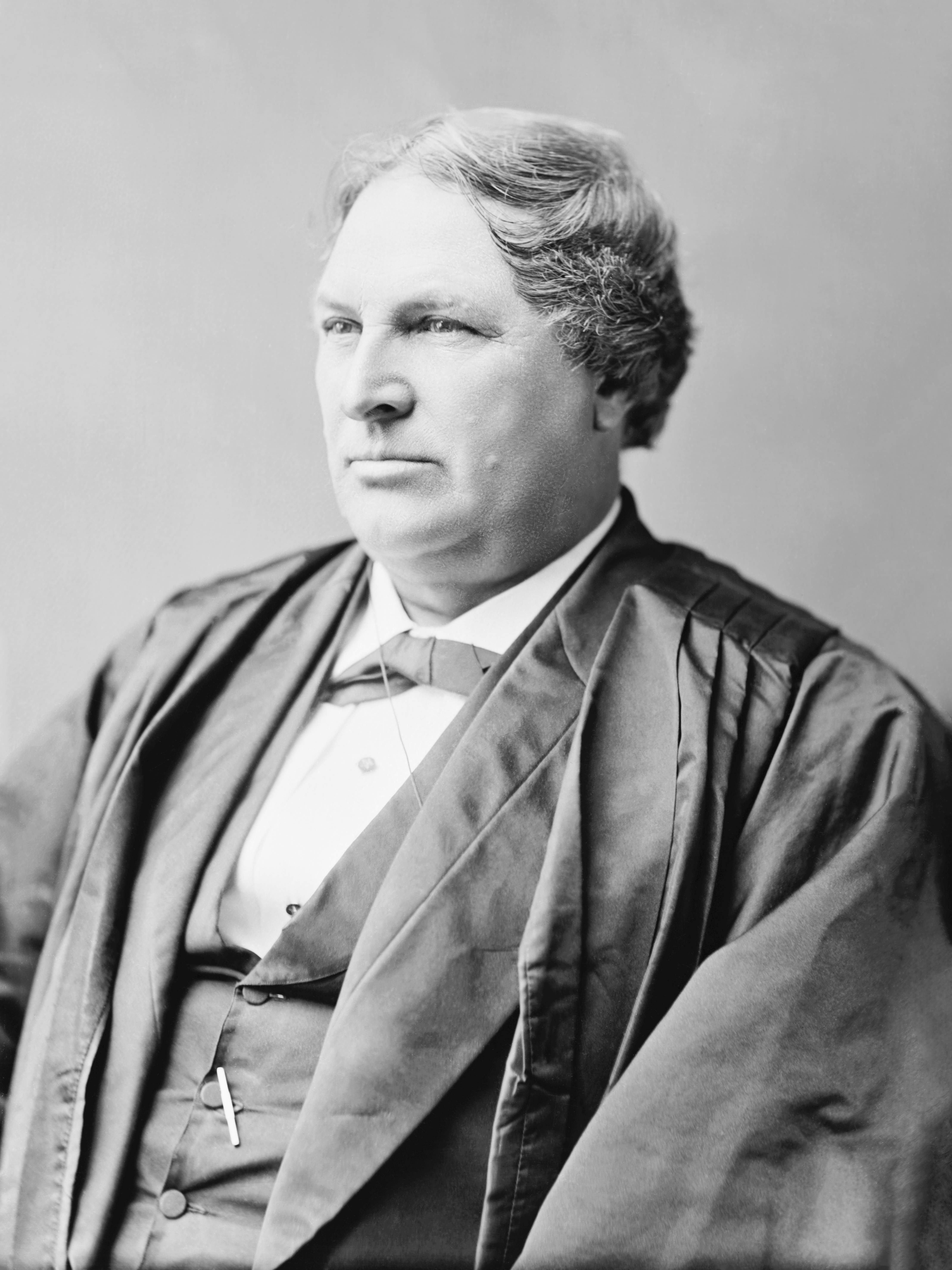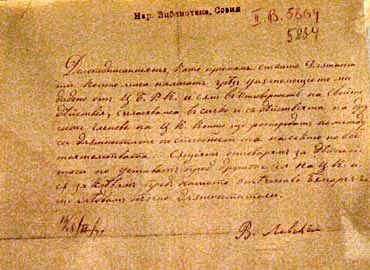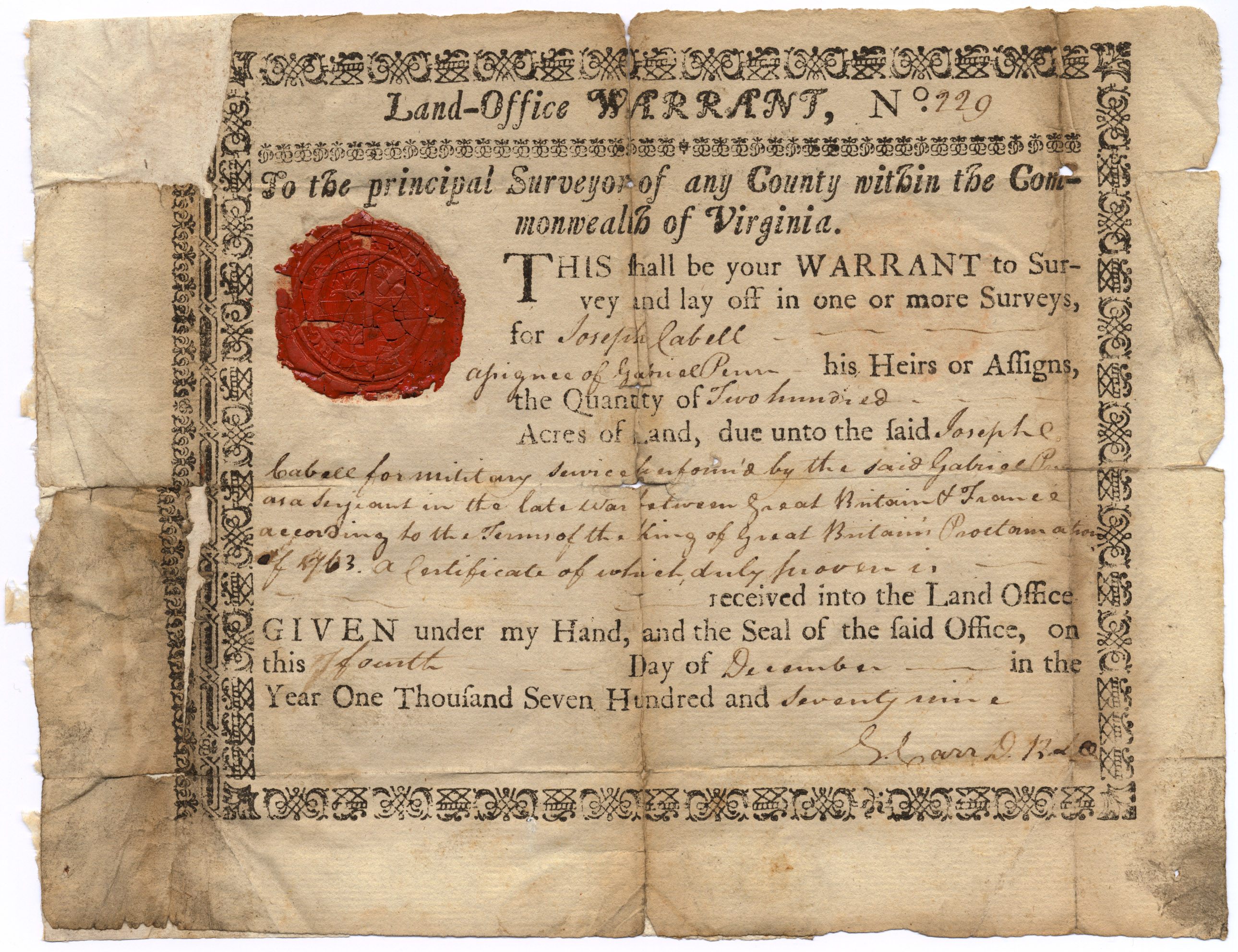|
United States V. Throckmorton
''United States v. Throckmorton'' (98 United States Reports, U.S. 61) is an 1878 decision of the U.S. Supreme Court on civil procedure, specifically ''res judicata'', in cases heard at equity (law), equity. A unanimous Court affirmed an appeal of a decision by the List of former United States district courts#California, District Court for California upholding a Alta California, Mexican-era land claim, holding (law), holding that collateral estoppel bars untimely Motion to set aside judgment, motions to set aside the verdict where the purportedly fraudulent evidence has already been considered and a decision reached. In the opinion it distinguished between that kind of fraud, which it called intrinsic fraud, intrinsic, and extrinsic fraud, in which deceptive actions exterior to the proceeding prevented a party, or potential party, to the action from becoming aware of the possibility they could vindicate their rights in court. The land claim at issue had been filed with the district ... [...More Info...] [...Related Items...] OR: [Wikipedia] [Google] [Baidu] |
United States Reports
The ''United States Reports'' () are the official record ( law reports) of the Supreme Court of the United States. They include rulings, orders, case tables (list of every case decided), in alphabetical order both by the name of the petitioner (the losing party in lower courts) and by the name of the respondent (the prevailing party below), and other proceedings. ''United States Reports'', once printed and bound, are the final version of court opinions and cannot be changed. Opinions of the court in each case are prepended with a headnote prepared by the Reporter of Decisions, and any concurring or dissenting opinions are published sequentially. The Court's Publication Office oversees the binding and publication of the volumes of ''United States Reports'', although the actual printing, binding, and publication are performed by private firms under contract with the United States Government Publishing Office. Citation For lawyers, citations to ''United States Reports'' are the st ... [...More Info...] [...Related Items...] OR: [Wikipedia] [Google] [Baidu] |
Samuel Freeman Miller
Samuel Freeman Miller (April 5, 1816 – October 13, 1890) was an American lawyer and physician who served as an Associate Justice of the Supreme Court of the United States, associate justice of the United States Supreme Court, U.S. Supreme Court from 1862 until his death in 1890. Early life, education, and medical career Born in Richmond, Kentucky, Miller was the son of Yeoman#United States, yeoman farmer Frederick Miller and his wife Patsy. He earned a medical degree in 1838 from Transylvania University in Lexington, Kentucky, Lexington, Kentucky. While practicing medicine for a decade in Barbourville, Kentucky, he studied the law on his own and was admitted to the bar in 1847. Favoring the Abolitionism in the United States, abolition of slavery, which was prevalent in Kentucky, he supported the Whig Party (United States), Whigs in Kentucky. Career In 1850, Miller moved to Keokuk, Iowa, Keokuk, Iowa, which was a state more amenable to his views on slavery, and he immed ... [...More Info...] [...Related Items...] OR: [Wikipedia] [Google] [Baidu] |
Samuel Freeman Miller - Brady-Handy
Samuel ''Šəmūʾēl'', Tiberian: ''Šămūʾēl''; ar, شموئيل or صموئيل '; el, Σαμουήλ ''Samouḗl''; la, Samūēl is a figure who, in the narratives of the Hebrew Bible, plays a key role in the transition from the biblical judges to the United Kingdom of Israel under Saul, and again in the monarchy's transition from Saul to David. He is venerated as a prophet in Judaism, Christianity, and Islam. In addition to his role in the Hebrew scriptures, Samuel is mentioned in Jewish rabbinical literature, in the Christian New Testament, and in the second chapter of the Quran (although Islamic texts do not mention him by name). He is also treated in the fifth through seventh books of ''Antiquities of the Jews'', written by the Jewish scholar Josephus in the first century. He is first called "the Seer" in 1 Samuel 9:9. Biblical account Family Samuel's mother was Hannah and his father was Elkanah. Elkanah lived at Ramathaim in the district of Zuph. His genealog ... [...More Info...] [...Related Items...] OR: [Wikipedia] [Google] [Baidu] |
United States Court Of Appeals
United may refer to: Places * United, Pennsylvania, an unincorporated community * United, West Virginia, an unincorporated community Arts and entertainment Films * ''United'' (2003 film), a Norwegian film * ''United'' (2011 film), a BBC Two film Literature * ''United!'' (novel), a 1973 children's novel by Michael Hardcastle Music * United (band), Japanese thrash metal band formed in 1981 Albums * ''United'' (Commodores album), 1986 * ''United'' (Dream Evil album), 2006 * ''United'' (Marvin Gaye and Tammi Terrell album), 1967 * ''United'' (Marian Gold album), 1996 * ''United'' (Phoenix album), 2000 * ''United'' (Woody Shaw album), 1981 Songs * "United" (Judas Priest song), 1980 * "United" (Prince Ital Joe and Marky Mark song), 1994 * "United" (Robbie Williams song), 2000 * "United", a song by Danish duo Nik & Jay featuring Lisa Rowe Television * ''United'' (TV series), a 1990 BBC Two documentary series * ''United!'', a soap opera that aired on BBC One from 1965-19 ... [...More Info...] [...Related Items...] OR: [Wikipedia] [Google] [Baidu] |
Affidavit
An ( ; Medieval Latin for "he has declared under oath") is a written statement voluntarily made by an ''affiant'' or '' deponent'' under an oath or affirmation which is administered by a person who is authorized to do so by law. Such a statement is witnessed as to the authenticity of the affiant's signature by a taker of oaths, such as a notary public or commissioner of oaths. An affidavit is a type of verified statement or showing, or in other words, it contains a verification, which means that it is made under oath on penalty of perjury, and this serves as evidence for its veracity and is required in court proceedings. Definition An affidavit is typically defined as a written declaration or statement that is sworn or affirmed before a person who has authority to administer an oath. There is no general defined form for an affidavit, although for some proceedings an affidavit must satisfy legal or statutory requirements in order to be considered. An affidavit may include, * a ... [...More Info...] [...Related Items...] OR: [Wikipedia] [Google] [Baidu] |
Land Grant
A land grant is a gift of real estate—land or its use privileges—made by a government or other authority as an incentive, means of enabling works, or as a reward for services to an individual, especially in return for military service. Grants of land are also awarded to individuals and companies as incentives to develop unused land in relatively unpopulated countries; the process of awarding land grants are not limited to the countries named below. The United States historically gave out numerous land grants as Homesteads to individuals desiring to prove a farm. The American Industrial Revolution was guided by many supportive acts of legislatures (for example, the Main Line of Public Works legislation of 1826) promoting commerce or transportation infrastructure development by private companies, such as the Cumberland Road turnpike, the Lehigh Canal, the Schuylkill Canal and the many railroads that tied the young United States together. Ancient Rome Roman soldiers were given pe ... [...More Info...] [...Related Items...] OR: [Wikipedia] [Google] [Baidu] |
United States Court Of Appeals For The Third Circuit
The United States Court of Appeals for the Third Circuit (in case citations, 3d Cir.) is a federal court with appellate jurisdiction over the district courts for the following districts: * District of Delaware * District of New Jersey * Eastern District of Pennsylvania * Middle District of Pennsylvania * Western District of Pennsylvania This circuit also hears appeals from the District Court of the Virgin Islands, which is an Article VI territorial court and not a district court under Article III of the Constitution. The court is composed of 14 active judges and is based at the James A. Byrne United States Courthouse in Philadelphia Philadelphia, often called Philly, is the largest city in the Commonwealth of Pennsylvania, the sixth-largest city in the U.S., the second-largest city in both the Northeast megalopolis and Mid-Atlantic regions after New York City. Sinc ..., Pennsylvania. The court also conducts sittings in other venues, including the United St ... [...More Info...] [...Related Items...] OR: [Wikipedia] [Google] [Baidu] |
Federal Rules Of Civil Procedure
The Federal Rules of Civil Procedure (officially abbreviated Fed. R. Civ. P.; colloquially FRCP) govern civil procedure in United States district courts. The FRCP are promulgated by the United States Supreme Court pursuant to the Rules Enabling Act, and then the United States Congress has seven months to veto the rules promulgated or they become part of the FRCP. The Court's modifications to the rules are usually based upon recommendations from the Judicial Conference of the United States, the federal judiciary's internal policy-making body. Although federal courts are required to apply the substantive law of the states as rules of decision in cases where state law is in question, the federal courts almost always use the FRCP as their rules of civil procedure. States may determine their own rules, which apply in state courts, although 35 of the 50 states have adopted rules that are based on the FRCP. History The Rules, established in 1938, replaced the earlier procedures und ... [...More Info...] [...Related Items...] OR: [Wikipedia] [Google] [Baidu] |
Controlling Law
Controlling law is a legal term used in contracts, trusts, or other legal documents. It refers to the laws of the state which will be relied upon in settling disputes, and is often stated as one of the provisions in an official agreement between two parties. The term is used most frequently in contracts formed between two parties that do not reside in the same state. In such an instance, the authoring party usually includes a clause asserting that any litigation that arises involving the contract must do so under the laws of the author's home state. Establishing which state will be the venue for litigation is an important part of any contract, and affects nearly every form of industry or commerce that transcends borders. For example, in the United States, many insurance companies choose to locate their headquarters in Iowa or Connecticut where state law is seen as favorable to their interests. This ensures that any legal action taken against the corporation will occur under frie ... [...More Info...] [...Related Items...] OR: [Wikipedia] [Google] [Baidu] |
Circuit Split
In United States federal courts, a circuit split occurs when two or more different circuit courts of appeals provide conflicting rulings on the same legal issue. The existence of a circuit split is one of the factors that the Supreme Court of the United States considers when deciding whether to grant review of a case.https://www.supremecourt.gov/ctrules/2013RulesoftheCourt.pdf Some scholars suggest that the Supreme Court is more likely to grant review of a case to resolve a circuit split than for any other reason. Despite the desire of the Supreme Court to resolve conflicts between circuit courts, legal scholars disagree about whether circuit splits are ultimately detrimental or beneficial. Some argue that circuit splits are harmful because they create confusion and encourage forum shopping, while other scholars argue that variation among circuits allows local courts to experiment with new laws that reflect the values of the local residents. Scholars have also observed that re ... [...More Info...] [...Related Items...] OR: [Wikipedia] [Google] [Baidu] |
Unconscionability
Unconscionability (sometimes known as unconscionable dealing/conduct in Australia) is a doctrine in contract law that describes terms that are so extremely unjust, or overwhelmingly one-sided in favor of the party who has the superior bargaining power, that they are contrary to good conscience. Typically, an ''unconscionable'' contract is held to be unenforceable because no reasonable or informed person would otherwise agree to it. The perpetrator of the conduct is not allowed to benefit, because the consideration offered is lacking, or is so obviously inadequate, that to enforce the contract would be unfair to the party seeking to escape the contract. Overview Unconscionability is determined by examining the circumstances of the parties when the contract was made, such as their bargaining power, age, and mental capacity. Other issues might include lack of choice, superior knowledge, and other obligations or circumstances surrounding the bargaining process. Unconscionable condu ... [...More Info...] [...Related Items...] OR: [Wikipedia] [Google] [Baidu] |
Dictum
In general usage, a dictum ( in Latin; plural dicta) is an authoritative or dogmatic statement. In some contexts, such as legal writing and church cantata librettos, ''dictum'' can have a specific meaning. Legal writing In United States legal terminology, a ''dictum'' is a statement of opinion considered authoritative (although not binding), given the recognized authoritativeness of the person who pronounced it."dictum", Black's Law Dictionary (8th ed. 2004); C.J.S. Courts §§ 142-143. There are multiple subtypes of ''dicta'', although due to their overlapping nature, legal practitioners in the U.S. colloquially use ''dictum'' to refer to any statement by a court the scope of which extends beyond the issue before the court. ''Dicta'' in this sense are not binding under the principle of '' stare decisis'', but tend to have a strong persuasive effect, by virtue of having been stated in an authoritative decision, or by an authoritative judge, or both. These subtypes include: * ''di ... [...More Info...] [...Related Items...] OR: [Wikipedia] [Google] [Baidu] |





